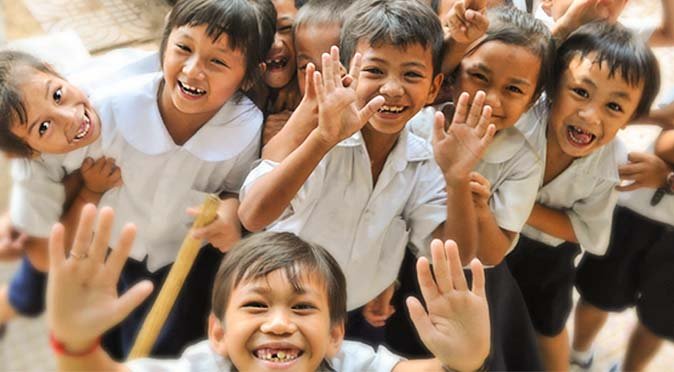Education for all

Bangladesh is commonly referred to as developing country, having a commitment to attain universal access to education. Not only Bangladesh, every country whether developing or developed wants to progress. And, education is a key part for a progressive nation. ‘Education for All’ is such a movement aiming to meet the need for education for all children, youths and adults. And hence, there is a clear need for all to ensure minimum education. Bangladesh in the past decades has made remarkable marks ensuring access to education, especially at the primary level. In article no 26 of Universal Declaration of Human Rights, it has been clearly said that, “Everyone has the right to education. Education shall be free, at least in the elementary and fundamental stages. Elementary education shall be compulsory”. According to a survey by the World Bank, the country’s net enrollment rate at the primary school level increased from 80 percent in 2000 to 98 percent by 2015, and net enrollment for secondary schools is now around 54 percent which was around 45 percent in 2000. Moreover, income related inequality often prevents financially disadvantaged groups from getting access to various levels of education and availing opportunities to achieve success through education. The poor students have less chance of completing any given education cycle than more well off students. There are multiple instances where primary education for many students may be the level which they can afford, so, to provide students with skills to enter professional life our government has set up many short term vocational training courses which focus on skill based education rather than theoretical practices. Our government has taken various initiatives in education reformation and has set certain goals to create an integrated educational curriculum. In addition to this, teaching students reading and writing, establishing values among students have also been taken seriously in the curriculum changes. Establishing a progressive and scientific outlook free of superstition and communalism will prepare them for further studies. Various current projects to promote the education of children in Bangladesh include compulsory primary education for all, free education for girls up to class 10, stipends for female students, a nationwide integrated education system and a food for education literacy movement. A large section of the country’s budget is set aside to help put these various programs into action and to promote education and make it more accessible. Recent years has seen efforts pay off and the Bangladesh education system is strides ahead of what it was only a few short years ago. Along with this our country needs more improved teacher training, better curricular support, continuous professional development and better school environments and facilities. We must give more focus on open school and universities where employed workers, or home makers can get proper quality education. Many NGO’s and organizations are set up in different parts of our country. The member organisations are campaigning for better quality education because all of these elements contribute to better quality education.



